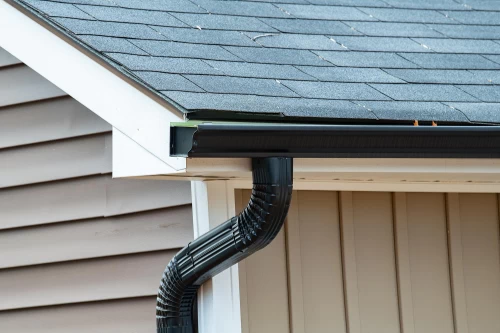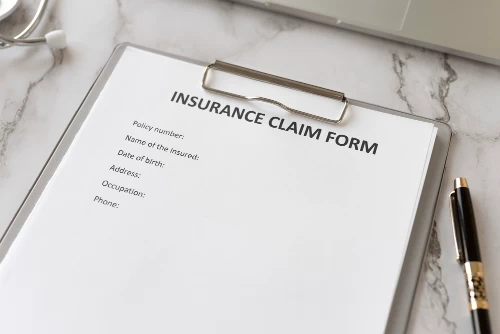Hurricane season is on us, and for those of us living in New Orleans East, it’s time to prepare our homes for potential storms. While we can’t control Mother Nature, we can take proactive steps to safeguard our properties and ensure the safety of our loved ones.
In this article, we’ll explore some essential tips on how to get your home hurricane-ready. From stocking up on supplies to creating an evacuation plan and prepping your property, let’s arm ourselves with knowledge so that we can face any storm head-on!
Stock Up On Supplies
When hurricane season is approaching, stocking up on essential supplies is crucial. It’s better to be over-prepared than caught off guard when a storm hits. Start by creating an emergency kit with non-perishable food items, bottled water, flashlights, batteries, a first aid kit, and any necessary medications.
Don’t forget about your furry friends! Ensure you have enough pet food and any necessary supplies for them. Additionally, consider stocking up on personal hygiene products and extra toiletries in case of extended power outages or limited store access.
It’s also wise to gather essential documents such as insurance policies, identification cards, and birth certificates. Store them in waterproof containers or make digital copies that can be accessed remotely if needed.
Remember to replenish your fuel supply for generators or vehicles ahead of time. Gas stations may run out of fuel during the chaos leading up to a storm, so being prepared with extra gasoline could prove invaluable.
Keep some cash on hand, as ATMs may be inaccessible due to power outages or network failures during severe weather events. Having some spare bills tucked away will enable you to purchase necessities if electronic payment methods are unavailable.
By taking the time now to stock up on these essential supplies, you’ll have peace of mind knowing that you’re ready for whatever Hurricane Season throws your way.
Create an Evacuation Plan
When it comes to hurricane season, one of the most important things you can do is create an evacuation plan for your home. This plan will help ensure the safety of yourself and your loved ones in the event that a hurricane is headed toward your area.
Start by identifying potential evacuation routes from your neighborhood. Map out multiple options in case certain roads are blocked or inaccessible. It’s also a good idea to familiarize yourself with local emergency shelters and their locations.
Next, determine where you will go if you need to evacuate. Reach out to friends or family members living outside the predicted hurricane path and see if they would be willing to host you temporarily. If that’s not an option, research hotels or motels further inland that have availability during hurricane season.
Make sure everyone in your household knows the evacuation plan and what steps they need to take when it’s time to leave. Pack essential items such as important documents, medications, food, water, clothing, and personal hygiene products ahead of time so you’re not scrambling at the last minute.
Stay informed about storm updates through local news sources or weather apps on your phone so you know when it’s time to put your evacuation plan into action.
Creating an evacuation plan may seem like a lot of work upfront, but it could save lives during hurricane season. Don’t wait until it’s too late – start planning today!
Prepare Your Home for Hurricane Season
Regarding hurricane season, one of the most important steps you can take is to prepare your home. By taking the time to make some simple and practical preparations, you can help protect your property and ensure your family’s safety.
Getting a roof inspection is crucial in preparing your home for hurricane season. Strong winds during a hurricane can cause severe damage to roofs, so it’s essential to identify any weak spots or areas that may need repair. A professional inspection will give you peace of mind knowing that your roof is secure and ready to withstand a storm.
Another critical task is cleaning out gutters and downspouts. Clearing away any debris will allow rainwater to flow freely without causing backups or flooding around your home. This simple step can prevent water damage during heavy rains associated with hurricanes.
Trimming trees near your property is another vital preparation measure. Overhanging branches pose a significant risk during high winds, potentially damaging windows, roofs or even falling onto power lines. Trimming back these trees ahead of time will reduce the likelihood of such hazards occurring.
Let’s look at each in more detail.

1. Get A Roof Inspection
When it comes to preparing your home for hurricane season, one crucial step that often gets overlooked is getting a roof inspection. Your roof is the first line of defense against the elements, and a robust and secure roof can make all the difference during a storm.
A professional roof inspection will identify potential weaknesses or damage that could leave your home vulnerable to leaks or structural failure. This includes checking for loose or missing shingles, damaged flashing around vents and chimneys, and signs of water damage inside your attic. The inspector will also assess the overall condition of your roof and recommend any necessary repairs or maintenance.
Getting a roof inspection before hurricane season allows you to address any issues proactively. It gives you peace of mind knowing that your home is as prepared as possible for whatever Mother Nature throws its way. Don’t wait until it’s too late – schedule a professional roof inspection today!
Remember, maintaining your roof isn’t just about protecting against hurricanes; it’s essential to regular home maintenance. Taking care of minor repairs now can prevent more significant problems and extend your roof’s lifespan.
So don’t overlook this crucial step in preparing your home for hurricane season. Schedule a professional roof inspection today and rest easy knowing that you’ve done everything possible to protect your home from the storms ahead!
Contact us for a free roof inspection

2. Clean Gutters and Downspouts
One often overlooked but crucial step in preparing your home for hurricane season is cleaning the gutters and downspouts. You might be wondering why this is so important. Well, when heavy rains come during a hurricane, clogged gutters can cause water to overflow and accumulate around your home’s foundation. This can lead to flooding and potential structural damage.
To prevent this from happening, take some time before hurricane season to inspect and clean out your gutters. Remove any leaves, twigs, or debris that may have accumulated over time. Ensure the downspouts are also clear, allowing water to flow freely away from your house.
If you’re uncomfortable doing this task yourself or don’t have the necessary equipment, consider hiring a professional gutter cleaning service. They will ensure that everything is thoroughly cleaned and functioning properly.
Remember that prevention is key when it comes to protecting your home from hurricanes. Taking these proactive steps now can save you a lot of headaches later on. So don’t forget about those gutters – they are essential in keeping your home safe during hurricane season!
Contact Us for a free home gutter inspection.
3. Trim Trees
Trimming the trees around your property is essential in preparing your home for hurricane season. Overgrown branches can become hazardous during high winds, posing a danger to your home and surrounding structures. By trimming trees before hurricane season arrives, you can minimize the risk of limbs falling onto your roof or causing damage to power lines.
Hiring a professional tree service is recommended for this task, as they have the expertise and equipment to remove any overhanging branches safely. They will also ensure the trees are pruned properly, promoting healthy growth and reducing potential risks.
During trimming, it’s essential to prioritize weak or dead branches that may break off easily during severe weather conditions. Additionally, consider removing any large branches close to your house or other valuable assets that could be susceptible to damage.
Regularly maintaining and monitoring tree growth throughout the year is crucial for disaster preparedness. Keep an eye out for signs of disease or decay in trees near your property and promptly address any issues with professional help.
By taking these steps to trim trees well in advance of hurricane season, you’ll not only protect your home but also contribute to overall community safety by minimizing potential hazards caused by fallen branches.
After the hurricane
After the hurricane has passed, it’s vital to assess the damage and take steps to ensure your safety and well-being. Here are some tips for what to do after a hurricane:
1. Stay informed: Monitor local news and updates for information on road conditions, power outages, and other essential updates.
2. Check for structural damage: Inspect your home for any signs of damage, such as cracks in the walls or foundation, loose roof shingles, or broken windows. Contact a professional contractor or insurance company for assistance if you notice any significant issues.
3. Be cautious of hazards: Watch out for downed power lines, debris on the ground, or standing water that may hide dangerous objects or pose electrical risks.
4. Document the damage: Take photos or videos of any damage to your property as evidence during insurance claims.
5. Start cleaning up: Remove fallen branches and debris from your yard while being mindful of potential hazards like broken glass or sharp objects.
6. Contact your insurance company: Report any damages and start the claims process immediately.

We can handle your insurance claim from start to finish and make sure everything gets covered.
7. Dispose of spoiled food: If you lost power during the storm, discard perishable items from your refrigerator and freezer that may have spoiled.
8 Practice self-care: The aftermath of a hurricane can be stressful, so make sure to take care of yourself emotionally and physically by getting enough rest, eating well-balanced meals, drinking plenty of water, and seeking support if needed.
Remember that recovering from a hurricane takes time, so be patient with yourself and others in your community as you work together toward rebuilding.
What is the best home siding to have in a hurricane-prone region?
Read our article about James Hardi Board siding.
James Hardie Board Siding Contractor – New Orleans
Conclusion
As hurricane season approaches, it’s crucial to take the necessary steps to prepare your home and ensure the safety of yourself and your loved ones. By stocking up on supplies, creating an evacuation plan, and preparing your home, you can be ready for whatever Mother Nature throws at you.
Stocking up on supplies is essential in case of power outages or limited store access. Ensure you have enough non-perishable food, water, batteries, flashlights, and a first aid kit. Don’t forget to include any necessary medications or pet supplies.
Creating an evacuation plan will help minimize confusion and stress during a hurricane. Identify safe areas in your home where you can seek shelter if needed. Additionally, determine multiple evacuation routes and designate meeting points for family members if you are separated.
Preparing your home involves taking steps such as getting a roof inspection to identify any potential weaknesses that could be exacerbated by high winds or heavy rain. Clean gutters and downspouts to prevent flooding during storms. Trim trees near your property that could pose a risk of falling branches or toppled trees during hurricanes.
After the hurricane has passed, assess any damage carefully before entering your home. Be cautious of structural issues or electrical hazards that may have occurred due to flooding or strong winds.
Remember that these steps are not exhaustive but provide a starting point for hurricane preparedness in New Orleans East (or any other area prone to hurricanes). Stay informed about weather updates from local authorities and follow their instructions closely for maximum safety.

